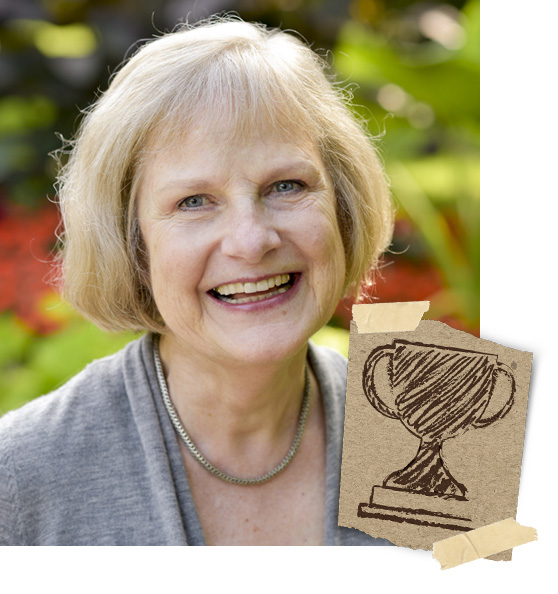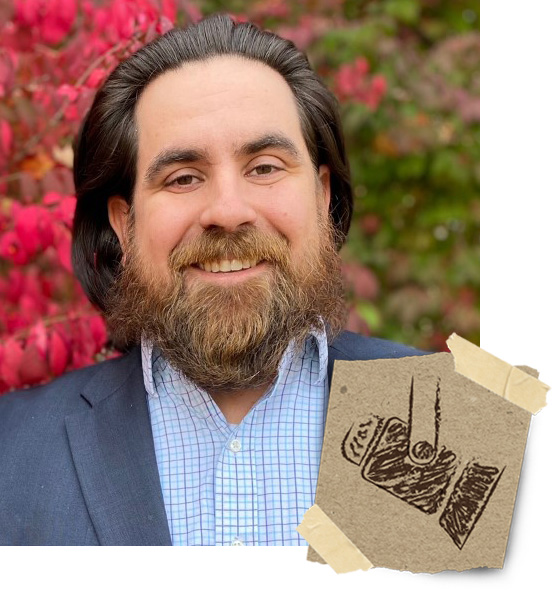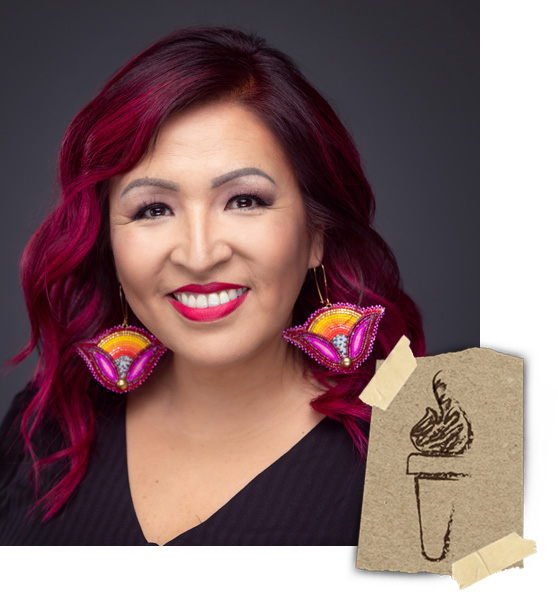Diversity Champion: Dr. Susan Sleeper-Smith
October 29, 2020
 Dr. Susan Sleeper-Smith is a professor in the Department of History, as well as the Department of American Indian and Indigenous Studies in the College of Arts and Letters. A member of MSU's faculty since 1994, Susan's research focuses on Indigenous communities in the late 18th and early 19th centuries. Community-Academic Innovation and Dissemination ( Community-AID) lab, which studies ways to support the success and well-being of families and youth of all backgrounds.
Dr. Susan Sleeper-Smith is a professor in the Department of History, as well as the Department of American Indian and Indigenous Studies in the College of Arts and Letters. A member of MSU's faculty since 1994, Susan's research focuses on Indigenous communities in the late 18th and early 19th centuries. Community-Academic Innovation and Dissemination ( Community-AID) lab, which studies ways to support the success and well-being of families and youth of all backgrounds.
When Dr. Susan Sleeper-Smith joined MSU in 1994, she noticed that, like most universities in the Big Ten conference, MSU did not have an Indigenous Studies program - so with the help of fellow faculty, she got to work creating one.
When I joined MSU, the only Big Ten university with an Indigenous Studies program was Minnesota. Dr. George Cornell, Dr. Gordon Henry, Professor Patrick LeBeau, and I got together and said, "This is something we need to have," and we put together an undergraduate program on the subject. We then realized that we wanted and needed to teach graduate students as well, but with only four of us, we weren't sure if we would have sufficient faculty to do so.
So, during my second year here at MSU, we organized a meeting with professors who taught Indigenous studies throughout the Big Ten at the Newberry Library in Chicago. We knew that we wouldn't have sufficient money to hire enough professors for each university to have its own program, so instead, we put together a consortium of all the Big Ten universities to get together and teach Indigenous history.
Later on, we brought the consortium to Michigan State University. It's still in existence at the Newberry Library, and I have been on the board of that since it began. We've limited the consortium membership to 20 universities, including the University of Minnesota, Harvard University, and Yale University. We offer graduate courses at the Newberry, as well as workshops across participating universities.
Dr. Sleeper-Smith's interest in Native American history originated while she was in graduate school. Her interest also stemmed from her own ancestry, as her mother was Sámi from TromsØ, Norway. Most of all, she's been inspired by the passion of her colleagues and students.
My interest in this field was really sparked when I took graduate courses with Dr. Bob Berkhofer, who wrote The White Man's Indian , and Dr. Carol Karlsen, who first researched the Salem Witchcraft Trials but then worked on Haudenosaunee women. Their interest in Indigenous studies was infectious. I was always very interested in the earlier period of history, when European and Indigenous societies first encountered one another and what that impact was on both of them.
A lot of my passion simply came from being in the classroom, teaching these courses and doing the research. A lot of the research I've done concerns Indigenous women and the incredible role that they played in their society. Indigenous women had as much voice and as much influence as men. It wasn't just a world of equality, it was a world in which male and female roles were comparable and enhanced each other.
My passion also came from doing the research and working with Indigenous communities in Chicago for a very long time, and teaching life-long learning courses at the Newberry outside of the consortium. I have an amazing group of scholars and students throughout the Big Ten that I've learned from and I worked with.
A renowned scholar of Native American history, Dr. Sleeper-Smith shares what she wishes more people would understand about Native American heritage.
Everyone should understand that we live on Indigenous land, and that Europeans created this society by confiscating Indigenous lands. Michigan State University itself sits on Indigenous lands. We need to acknowledge that if it had not been for Indigenous lands, this society would not even exist. I wish we spent more time talking about the world as it existed before Europeans put their stamp on it.
There's a general disdain for Indigenous knowledge. Indigenous people lived here for thousands of years, and knew how to use the land, plants, and animals available to them. But colonizers shunned this knowledge, and because of that, we lost all of this knowledge about how to sustainably use the land and take care of our communities. I'm not saying Indigenous people are perfect, but Western society has taken thousands of years of knowledge and just dismissed it — and that's dangerous! The roots of racism lay with how Indigenous people were treated: they weren't just treated poorly due to their skin color, but their knowledge was deemed 'inferior' and cast aside. Racism is dismissing people.
I also wish people understood that, before settlers came to the U.S., Indigenous communities were not only surviving, but thriving! The communities I research that lived in the Ohio-River Valley were incredibly prosperous. The thing that's so fascinating about Indigenous people is that, to them, culture is not separated from their day-to-day life - it's not something they go to an art museum to look at — it's their lifestyle. It's the bowl they create and then eat out of, it's the clothing that they sew and then wear. It's just a tremendously rich culture. That is what I wish students learned before they learn about the archetypal founding moments of U.S. history, such as Jamestown and the Mayflower.
Read more:

Diversity Spotlight
Alumni
Dr. Adam Farero
Dr. Farero is an MSU alumnus, a researcher, and a marriage/family therapist, whose scholarship focuses on mental health among military families. He also is an assistant professor in the MSU Department of Human Development and Family Studies.

Diversity Torch
Student
Angie Sanchez
Angie Sanchez is a member of the Grand Traverse Band of Ottawa and Chippewa Indians, and is a second-year PhD student in the MSU Department of Geography, Environment, and Spatial Sciences.

Diversity Matters
We strive to cultivate an inclusive and welcoming college environment that celebrates a diversity of people, ideas, and perspectives.

